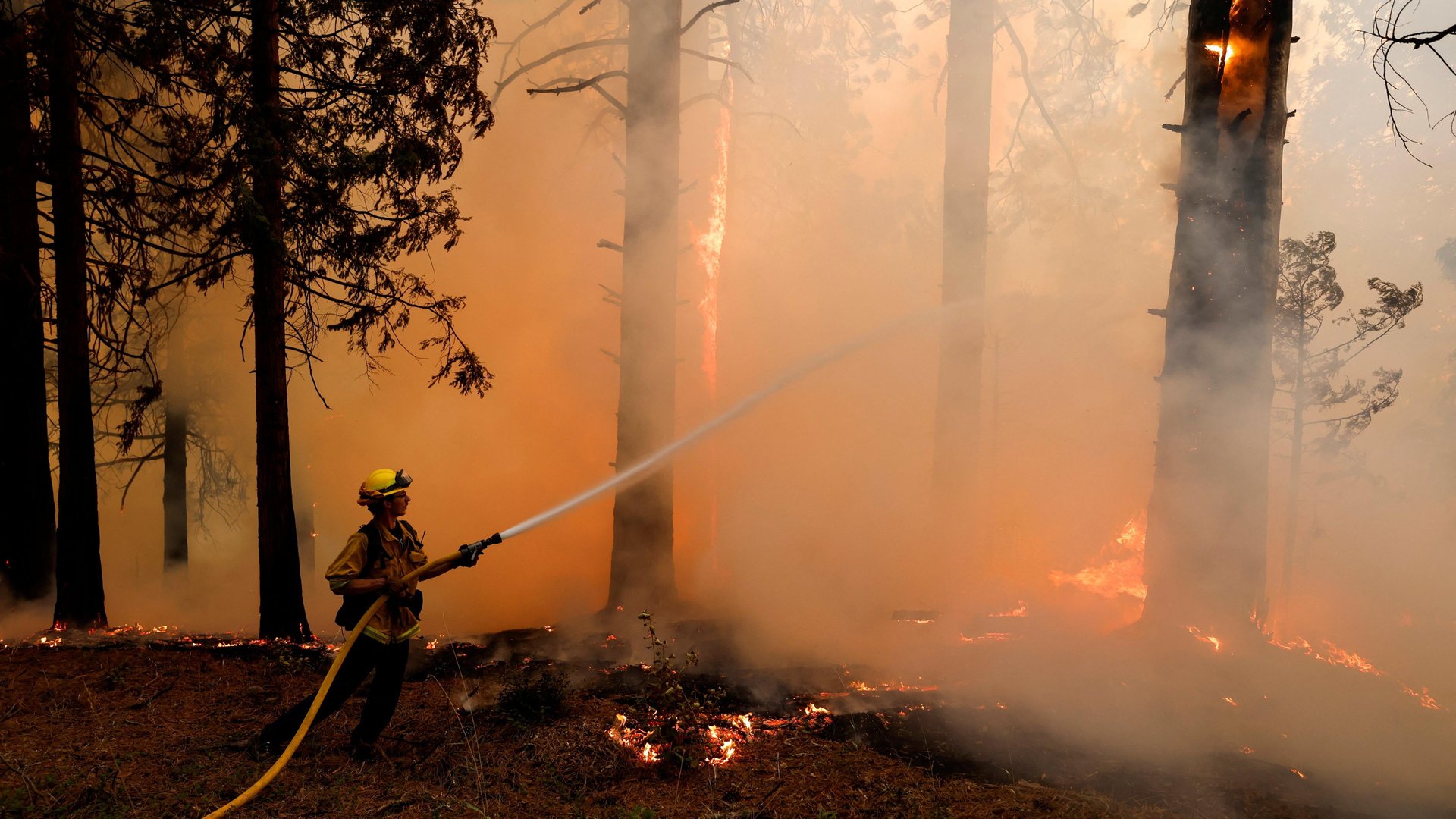Insurance giant Allstate followed StateFarm in halting home insurance policies for Californians
The moves come amid increasingly disastrous wildfires in the state.

California’s homeowners are already bearing the brunt of devastating wildfires every summer. Now, it will be harder for them to find insurance companies willing to potentially cover the damages.
Allstate, one of California’s largest property and casualty insurance providers, has stopped taking on new policies for both personal and business properties in the state. Last week, StateFarm announced the same decision, citing wildfire risks and high reconstruction costs.
Allstate’s move is aimed “to continue to protect current customers,” spokesperson Brittany Nash wrote in an email to the San Francisco Chronicle. The company paused new insurance policies in California last year, but the move went largely unnoticed.
Unlike StateFarm, Allstate has not clarified reasons for the move.
California experiences thousands of wildfires every year, and their frequency and intensity has been accelerated by climate change. Wildfires burned through roughly 362,000 acres in 2022 and 2.5 million acres the previous year. In 2020, California had a historic count of 10,431 wildfires, scorching a total of more than four million acres.
California’s challenging reinsurance market
It has become significantly more expensive for insurance companies to operate in California in recent years.
In 2017 and 2018, wildfires eroded the underwriting profits that insurers had accrued over the last 26 years, according to the Wall Street Journal. Yet, the California Department Insurance (CDI) is not allowing insurers to increase premiums to make up for costs linked to wildfire damage.
“Department of Insurance rate regulation experts always represent consumers’ interests,” Michael Soller, spokesperson of the Department of Insurance told the San Francisco Standard. “They use every tool available to ensure consumers are not paying more than they should and that, as the law dictates, rates are not inadequate, excessive or unfairly discriminatory.”
California is the only state that requires insurers to set premiums based on how much a company has paid in claims over the past 20 years. The limitations make it difficult for insurance companies to charge the rates they believe are in line with the risks they’re taking.
“How would you do business in a wildfire-prone area where you’re not allowed to look at fuel density around you?” Rex Frazier, president of the Personal Insurance Federation of California, an industry lobbying group told the Standard.
While insurers like StateFarm, Allstate, and AIG have been reducing their presence in California after years of catastrophic wildfires, there are still 115 insurance companies writing residential policies in California currently, according to the Department of Insurance.
The recent pause is not the first time Allstate has halted new homeowner policies in California. The company put the brakes on new applications between 2007 and 2016, after regulators questioned Allstate’s proposal of a 12.2% increase in premiums.